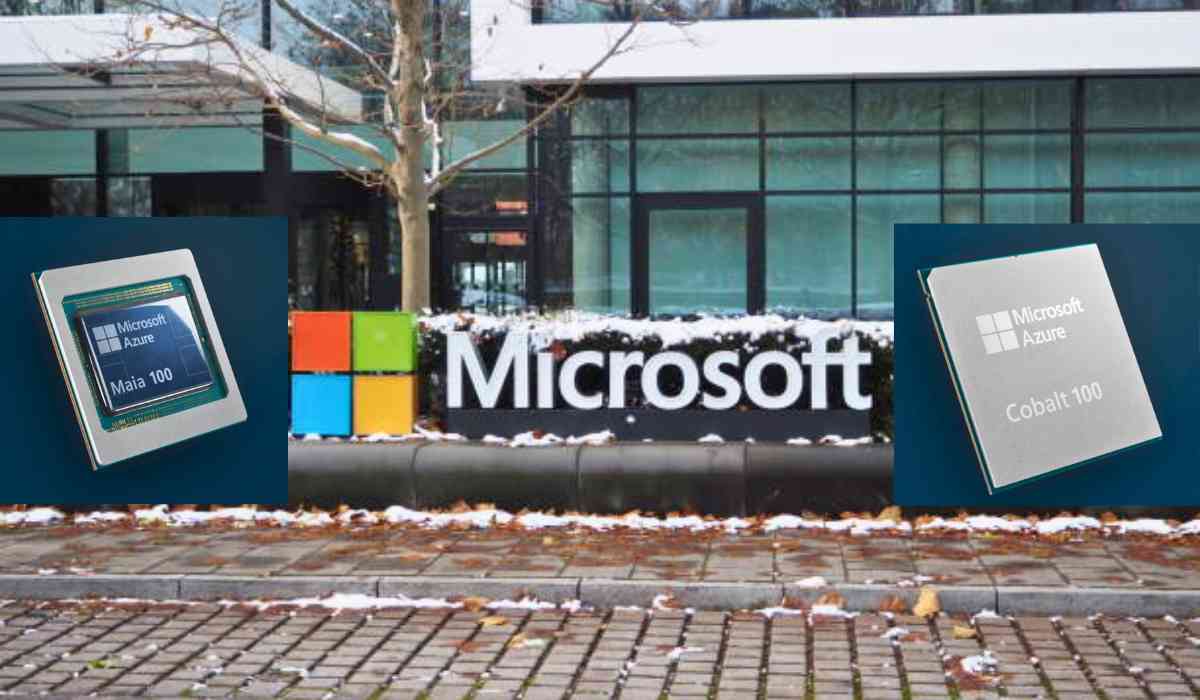Microsoft, known for its comprehensive systems approach, is making significant changes to its infrastructure in order to effectively respond to the increasing need for artificial intelligence (AI). In a discreet and thorough manner, they have developed a meticulous process of testing silicon, which is a vital step in establishing the foundation of the digital era. During the Microsoft Ignite event, this tech giant introduced two exclusive chips: the Microsoft Azure Maia AI Accelerator, designed specifically for AI and generative tasks, and the Microsoft Azure Cobalt CPU, a processor based on Arm technology that is specifically tailored for general-purpose compute workloads on the Microsoft Cloud.
![]()
These chips play a vital role in Microsoft's comprehensive infrastructure systems, encompassing silicon choices, software, servers, racks, and cooling systems. Our aim is to offer tailored solutions for both internal and customer workloads, demonstrating our dedication to adaptability, efficiency, sustainability, and affordability. The chips are scheduled to be introduced in Microsoft's data centres early next year, initially supporting services such as Microsoft Copilot and Azure OpenAI Service.
![]()
Scott Guthrie, the Executive Vice President of Microsoft's Cloud + AI Group, emphasized the company's strong commitment to constructing an AI innovation infrastructure, enhancing performance at every level, promoting supply chain diversity, and providing customers with a wide range of flexible options.
Chips, commonly known as the hard workers of the cloud, handle large volumes of data, allowing for a wide range of tasks to be accomplished. Microsoft takes an approach that combines specially created chips, software, and hardware designed together to unlock innovative abilities. The Maia 100 AI Accelerator, specifically designed for Azure's hardware system, will effectively manage important internal AI tasks. Additionally, the Cobalt 100 CPU, based on the eco-friendly Arm architecture, supports Microsoft's sustainability objectives by enhancing performance while minimizing energy consumption in data centres.
![]()
Microsoft's dedication to co-evolving hardware and software is clearly demonstrated through its collaboration with OpenAI. The design of the Maia chip has been enhanced with valuable feedback from OpenAI, resulting in exceptional performance for extensive language models. Moreover, the company's Azure Boost, which enables quicker storage and networking, along with its partnerships with industry leaders for extra infrastructure choices, exemplify its unwavering commitment to customer-focused solutions.
![]()
In conclusion, Microsoft's impressive advancements in custom silicon, along with their comprehensive approach to infrastructure, showcase a strong dedication to shaping the future of AI workloads on Azure. Their ongoing endeavours to enhance every aspect of the technological framework underscore a focus on meeting customer needs, with an emphasis on performance, power efficiency, and cost-effectiveness.
Image Credits: Microsoft
Ⓒ Copyright 2023. All Rights Reserved Powered by Vygr Media.






















